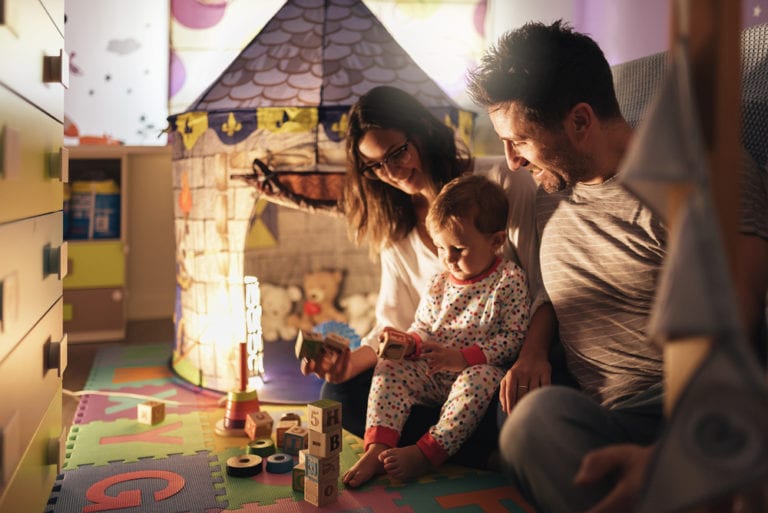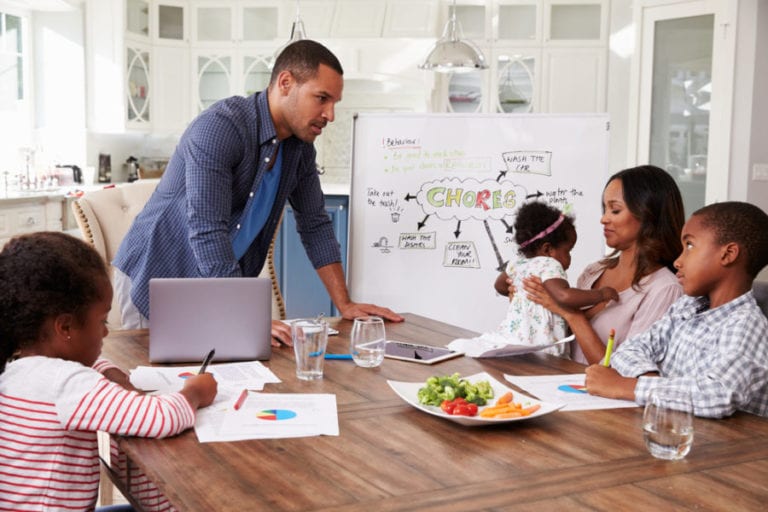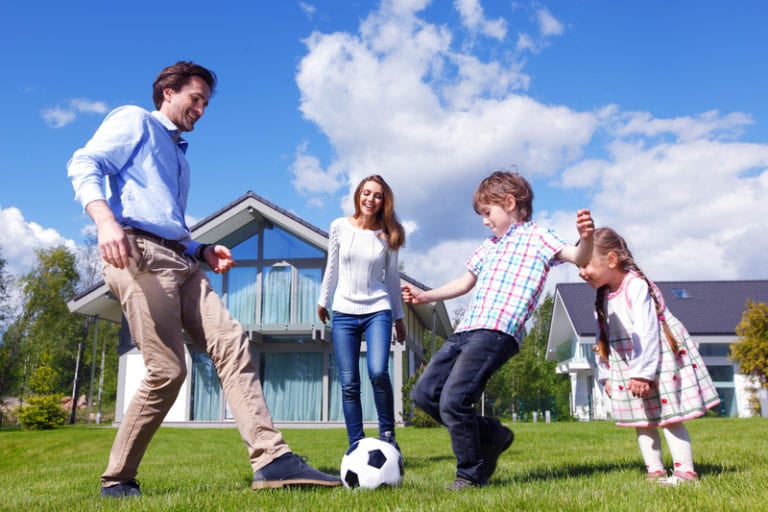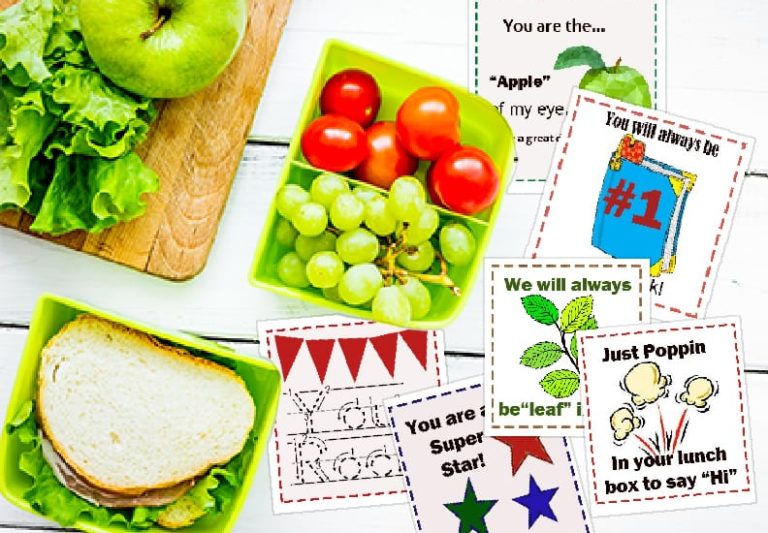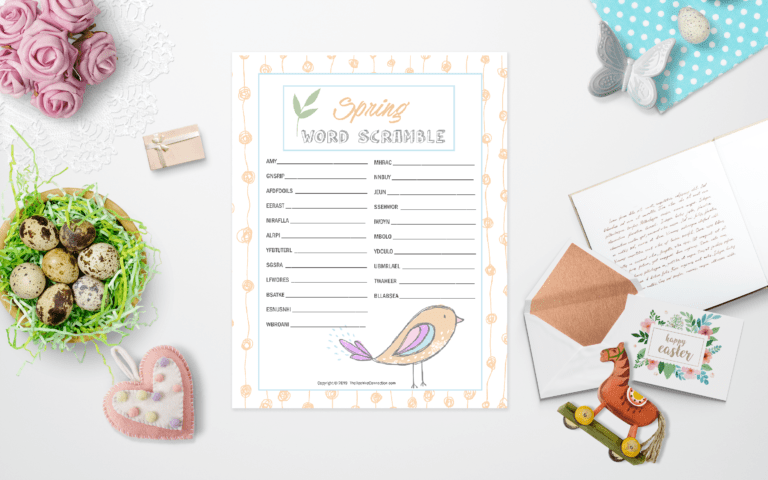10 Best Conflict Resolution Games for Kids, Students, and Teens
Disclosure: This post may contain affiliate links, meaning I may get a small commission if you decide to make a purchase through my links, at no cost to you.
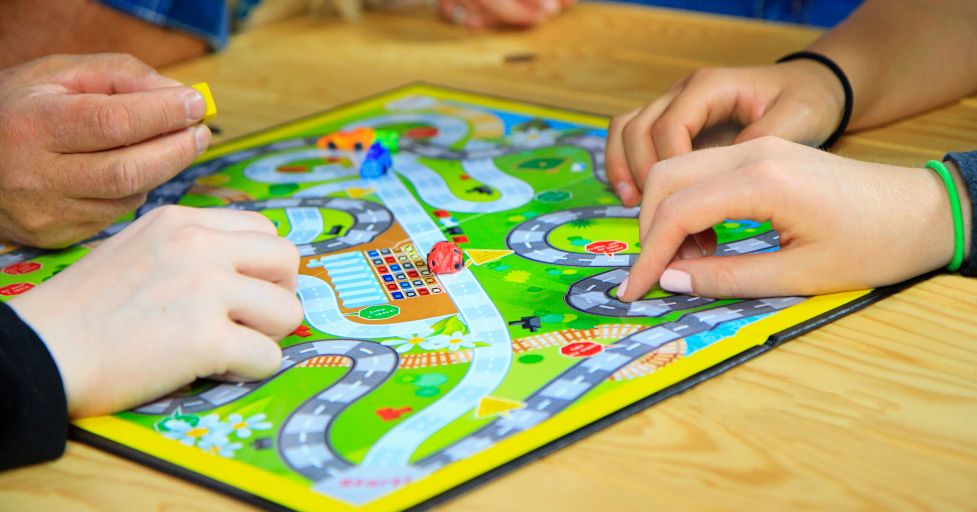
Best Conflict Resolution Games for Kids, Students and Teens
Conflict is a natural part of life, but learning how to handle it effectively is a crucial skill for kids, teens, and students. Did you know that 93% of teachers believe social-emotional learning is essential for academic success? That’s where conflict resolution activities for teens, come in! These conflict resolution exercises and engaging games not only teach valuable skills but also make learning fun. In this article, we’ll explore the 10 best conflict resolution games that’ll have your young ones solving problems like pros. Let’s dive in to conflict resolution activities for youth.
Related:
Age Appropriate Discipline Chart PDF
Positive Discipline Techniques for Home and The Classroom FREE Printables
Try Our Connection Cards Bundle for Conflict Resolution Ideas
#1 Junior Learning 6 Conflict & Resolution Games
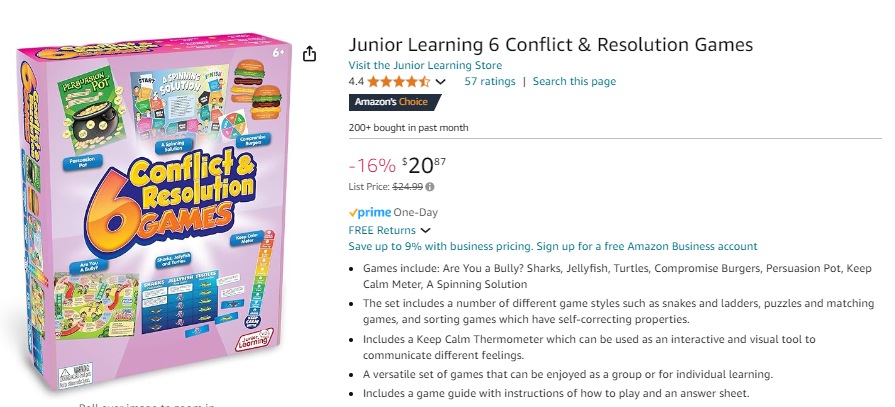
As a mom of four and a long-time educator, I’m always on the lookout for versatile learning tools. Let me tell you, the Junior Learning 6 Conflict & Resolution Games set is a goldmine! It’s like having a Swiss Army knife for social-emotional learning.
Set of varied games to keep kids engaged
Variety is the spice of life, and it’s also the key to keeping kids interested in learning. This set offers six different games, each tackling conflict resolution from a unique angle. I’ve used these games with my own children and in my work with young adults with special needs, and I’m consistently impressed by how well they hold everyone’s attention. From board games to card games, there’s something here for every learning style and preference.
Teaches practical conflict resolution techniques
Here’s a shocking stat for you: according to a recent study, children who learn effective conflict resolution techniques are 40% less likely to engage in bullying behavior. That’s huge! These games don’t just teach abstract concepts; they provide kids with real, actionable strategies they can use in their daily lives. I’ve seen my students apply these techniques on the playground, and let me tell you, it’s incredibly rewarding to watch!
Perfect for group activities and classroom settings
As a former preschool teacher, I can’t stress enough how valuable these games are in a classroom setting. They’re designed for group play, which makes them perfect for fostering a collaborative learning environment. I’ve used them for everything from morning circle time to conflict resolution workshops, and they always deliver. The games adapt well to different group sizes, making them a flexible tool for any educator’s toolkit.
Helps children recognize emotional triggers
One of the most crucial skills in conflict resolution is recognizing what sets us off – and these games excel at teaching just that. Through various scenarios and role-playing exercises, children learn to identify their emotional triggers and those of others. It’s like giving them an emotional early warning system! I’ve watched my own kids become more self-aware and empathetic as they’ve played these games, and it’s truly heartwarming.
What I love most about this set is how it turns the sometimes daunting task of learning conflict resolution into an enjoyable experience. It’s not just about avoiding arguments; it’s about building the social problem-solving skills that will serve children throughout their lives.
Whether you’re a parent looking to foster peacemaking skills at home or a teacher aiming to create a more harmonious classroom, these games are an invaluable resource. They’ve certainly made a difference in my household and classrooms!
Remember, every peaceful interaction our children have is a step towards a more understanding world. So why not make that learning process fun? Give the Junior Learning 6 Conflict & Resolution Games a try – I’m sure you won’t be disappointed!
#2 Chat Chains – Conflict Games for Youth
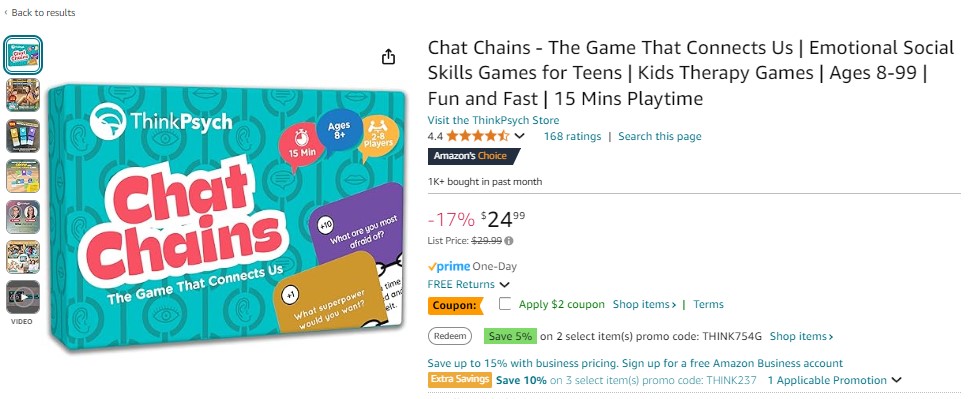
As a mom of four and an educator, I’ve seen my fair share of family games. But let me tell you, Chat Chains is something special! It’s not just a game; it’s a conversation catalyst that can transform your family dynamics.
Family-friendly game that builds strong connections
Did you know that families who spend quality time together playing games are 20% more likely to report higher levels of happiness and satisfaction? Chat Chains taps into this power of play, creating a space for meaningful interactions. I’ve watched my own family grow closer through our Chat Chains sessions. It’s amazing how a simple game can turn an ordinary evening into a bonding experience that we all look forward to!
Promotes empathy and understanding through conversation
In today’s fast-paced world, deep conversations can be rare. Chat Chains changes that! The game prompts players to share thoughts and feelings on various topics, fostering empathy and understanding. I’ve seen my kids – from the chattiest to the most reserved – open up in ways I never expected. It’s like a window into their world, helping us all see things from different perspectives.
Used by counselors and social workers
Don’t just take my word for it – professionals love this game too! As someone who’s worked with young adults with special needs, I appreciate tools that are both effective and enjoyable. Chat Chains fits the bill perfectly. It’s been embraced by counselors and social workers as a non-threatening way to encourage self-expression and build rapport.
Develops social-emotional skills in a fun way
Who says learning can’t be fun? Chat Chains cleverly disguises social-emotional skill development as an entertaining game. It’s like sneaking vegetables into a delicious smoothie – the kids are having so much fun, they don’t even realize they’re building crucial life skills!
From active listening to emotional vocabulary, this game covers it all. You will see that these conflict resolution games for elementary students and even teens make leaps and bounds in their social-emotional growth, all while laughing and enjoying themselves.
What I love most about Chat Chains is its versatility. Whether you’re looking to liven up a family dinner, break the ice in a classroom, or create a safe space for emotional expression, this game delivers. It’s more than just a conversation starter – it’s a bridge-builder, connecting hearts and minds one chain at a time.
So, are you ready to strengthen your family bonds, boost empathy, and have a blast all at once? Give Chat Chains a try! Trust this mom of four and longtime educator – it’s a game-changer in more ways than one. Who knows? Your next family game night might just be the start of deeper understanding and closer connections. Let’s chat!
#3 Breaking Barriers Down
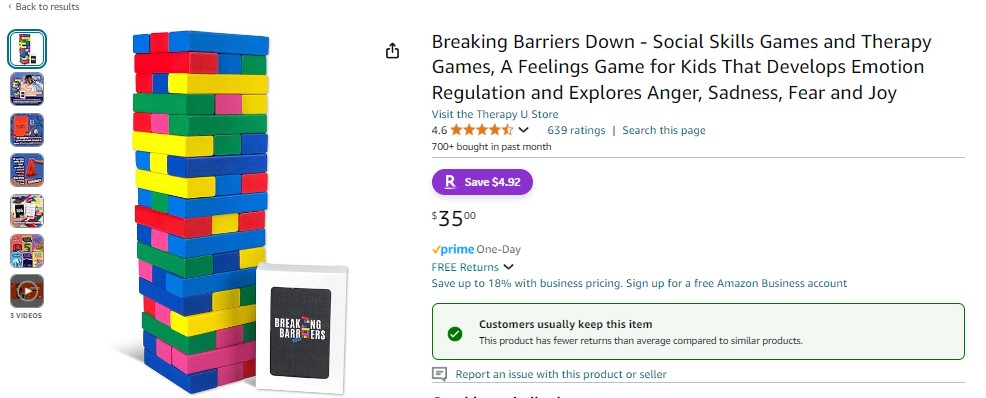
As a mom of four and an educator with experience in special needs, I’m always on the lookout for innovative tools that make emotional learning engaging. Breaking Barriers Down is a game that quite literally builds emotional intelligence block by block!
Interactive block stacking game with emotional questions
Picture this: Jenga meets therapy in the most delightful way possible! Breaking Barriers Down combines the thrill of a block-stacking game with thought-provoking emotional questions. It’s genius, really. I’ve seen kids who normally shy away from talking about feelings suddenly become eager participants when there’s a tower to build. The physical challenge keeps them engaged, while the questions spark meaningful conversations.
Encourages children to express and manage their feelings
Here’s a startling fact: studies show that children with strong emotional regulation skills are 50% more likely to succeed academically. Breaking Barriers Down taps into this crucial area of development. As players remove blocks and answer questions, they’re actually building their emotional vocabulary and learning to articulate complex feelings.
You can begin to see kids go from “I’m fine” to expressing nuanced emotions like frustration, anticipation, and contentment. It’s like witnessing little emotional linguists in action! When you know how you are feeling, then these resolving conflict activities will be essential for strengthening emotional intelligence.
Can be used in therapy sessions
In my work with young adults with special needs, I’m always searching for tools that make class time more fun. Breaking Barriers Down is a game-changer in this regard! The non-threatening nature of the game helps clients open up, and the physical component can be especially beneficial for those who struggle with traditional talk therapy. Many have reported breakthroughs happening over a wobbling tower that didn’t occur in months of conventional sessions.
Combines physical activity with emotional learning
As a former preschool teacher, I know firsthand the power of kinesthetic learning. Breaking Barriers Down brilliantly marries physical activity with emotional growth. It’s not just about answering questions – it’s about focusing, strategizing, and sometimes dealing with the disappointment of a fallen tower.
These experiences create natural opportunities to discuss and manage emotions in real-time. It’s a perfect conflict management activity. I’ve seen this game used in classroom settings, and it’s amazing how even the most fidgety kids become absorbed in the dual challenge of building and sharing.
What sets Breaking Barriers Down apart is its ability to make emotional learning tangible. It’s one thing to talk about building emotional intelligence, but this game lets kids literally construct it with their own hands. The pride on a child’s face when they successfully remove a block and share a feeling is priceless. It’s not just a game – it’s a confidence builder, an empathy generator, and a communication facilitator all rolled into one.
So, whether you’re a parent looking to deepen family connections, a teacher aiming to create a more emotionally aware classroom, or a therapist seeking new ways to engage clients, Breaking Barriers Down is a must-try. It’s more than a game – it’s a bridge to better emotional understanding. Ready to stack up some serious emotional growth? Give it a go, and watch the barriers come tumbling down!
#4 Teamwork – Cooperative Family Games
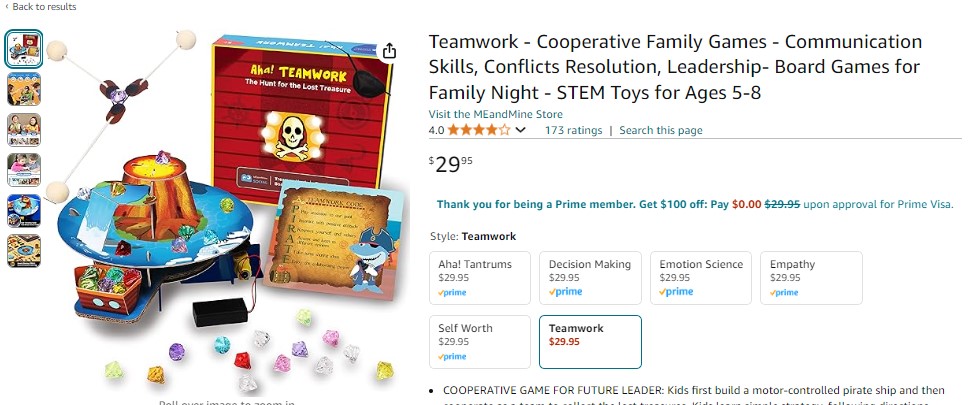
As a mom of four with a background in education, I’m always on the hunt for games that are both fun and educational. Let me tell you, Teamwork – Cooperative Family Games is a true gem that ticks all the boxes!
Board game that develops communication and listening skills
Did you know that effective communication skills can increase a child’s chances of academic success by up to 40%? That’s why I love how this game puts communication front and center.
It’s not just about rolling dice and moving pieces; players must actively listen to each other and express their ideas clearly to succeed. I’ve seen my own kids transform from interrupting chatterboxes to attentive listeners through playing this game. It’s like watching little diplomats in training!
Teaches basic electronics while promoting teamwork
Now, here’s where things get really exciting! Teamwork doesn’t just stop at social skills – it actually introduces kids to the world of electronics. As a former preschool teacher, I can’t stress enough how important it is to make STEM subjects accessible and fun.
This game does just that! Players work together to build a simple electronic device, learning about circuits and components along the way. I’ve used this game with young adults with special needs, and it’s amazing to see how the hands-on approach makes complex concepts click for them.
Educational and fun for the whole family
Let’s face it – some educational games can be a real snooze-fest for adults. But not Teamwork! This game manages to keep everyone engaged, from the youngest family member to grandma and grandpa. I’ve had more “aha!” moments playing this with my kids than I care to admit.
It’s a beautiful thing when a game can level the playing field, allowing children and adults to learn and laugh together. Plus, it’s a great way to sneak in some quality family time without anyone feeling like they’re being “taught”.
Provides real-life conflict resolution scenarios
Here’s where Teamwork really shines. The game presents players with realistic scenarios that require problem-solving and conflict resolution. It’s like a practice run for real-life challenges! I’ve watched my kids apply strategies they’ve learned in the game to resolve disputes with friends and siblings. It’s not just about winning; it’s about learning how to navigate disagreements and find solutions that work for everyone.
What I love most about Teamwork is how it seamlessly blends so many crucial skills into one engaging package. It’s not often you find a game that can teach electronics, boost communication skills, and provide conflict resolution practice all at once. Whether you’re a parent looking to make family game night more meaningful, a teacher seeking innovative classroom tools, or a therapist working on social skills, Teamwork has something to offer.
So, are you ready to plug into some serious fun and learning? Give Teamwork – Cooperative Family Games a try. I bet you’ll be amazed at how much your family can grow together, one circuit at a time. Let’s power up those teamwork skills!
#5 The Stop, Relax & Resolve Conflict Game
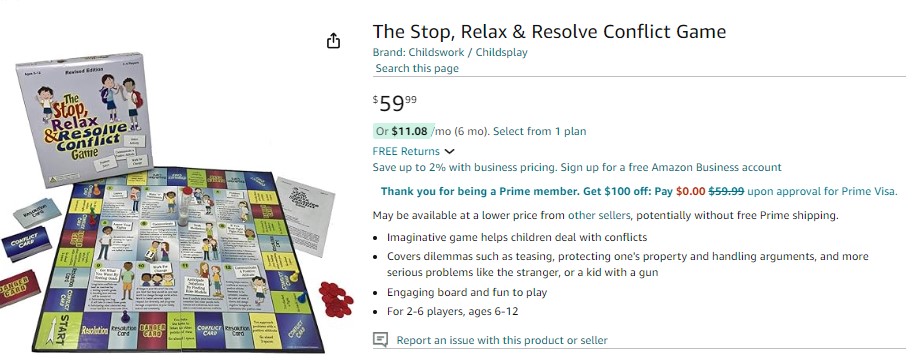
As a mom of four and an educator, I’ve seen my fair share of conflicts. But here’s a shocking stat: children who learn effective conflict resolution skills are 60% less likely to engage in aggressive behavior as adults. That’s why I’m head over heels for The Stop, Relax & Resolve Conflict Game!
Designed to teach peaceful conflict resolution methods
This game is like a peace ambassador in a box! It’s brilliantly designed to guide kids through the process of resolving conflicts without resorting to aggression or hurt feelings.
It’s amazing to see how quickly they pick up on the methods. The game breaks down complex conflict resolution strategies into bite-sized, kid-friendly pieces. It’s not about avoiding conflicts – it’s about navigating them skillfully.
Suitable for classroom use and family game nights
Versatility is key when it comes to educational games, and The Stop, Relax & Resolve Conflict Game delivers in spades. As a former preschool teacher, I can attest to its effectiveness in a classroom setting.
It’s perfect for circle time or as a focused activity. But the fun doesn’t stop when the school bell rings! We’ve incorporated it into our family game nights, and let me tell you, it’s been a game-changer for our household dynamics.
Covers multiple conflict resolution techniques
One size doesn’t fit all when it comes to games for conflict management. And this game gets that. It introduces a variety of techniques, from deep breathing for emotional regulation to “I” statements for clear communication.
In my work with young adults with special needs, I’ve found this multi-technique approach invaluable. It allows each individual to find the methods that resonate best with them. It’s like giving kids a Swiss Army knife for social-emotional challenges!
Helps kids practice through various scenarios
Practice makes perfect, right? This game takes that to heart by presenting a wide array of realistic scenarios for conflict resolution activities for students, kids, and teens to work through. From playground disputes to sibling rivalries, it covers the gamut of childhood conflicts.
I’ve watched kids role-play these scenarios, and it’s incredible to see how they apply the game’s conflict resolution scenarios for kids to real-life situations. It’s like a flight simulator for social skills!
What sets The Stop, Relax & Resolve Conflict Game apart is its focus on practical application. It’s not just about memorizing steps; it’s about internalizing a peaceful approach to problem-solving. The game creates a safe space for kids to make mistakes and learn from them, without the high stakes of a real conflict situation.
I’ve seen how this game can transform the way children approach disagreements. It’s not just about avoiding fights; it’s about building the kind of emotional intelligence and communication skills that will serve them well into adulthood.
Whether you’re a parent looking to foster a more harmonious home environment, a teacher aiming to create a cooperative classroom, or a therapist working on social skills, this game is an invaluable tool.
So, are you ready to turn conflict into an opportunity for growth and learning? Give The Stop, Relax & Resolve Conflict Game a try. Trust me, your kids (and your stress levels) will thank you!
#6 Peacetown: A Conflict Resolution Game
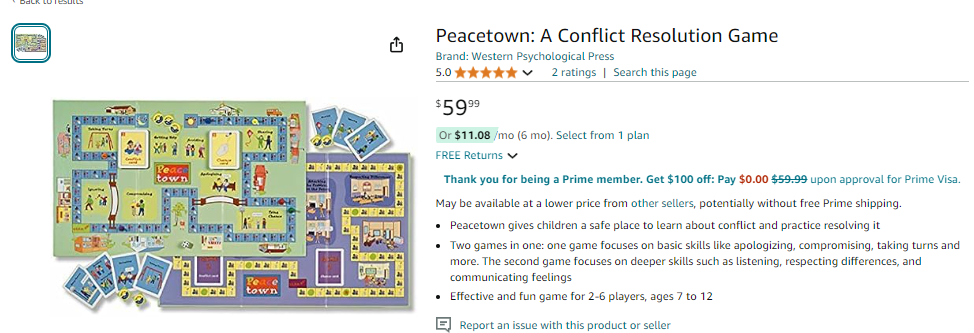
As a mom of four and an educator, I’ve seen firsthand how crucial it is to teach conflict resolution skills early. Enter Peacetown: A Conflict Resolution Game – a delightful town where peace-building is the name of the game!
Creates a safe space for learning conflict resolution
Did you know that children who feel safe expressing their emotions are 40% more likely to develop strong problem-solving skills? Peacetown creates this exact environment! It’s like a miniature training ground where kids can explore conflicts without real-world consequences. I’ve used this game with my own children and in my work with young adults with special needs, and it’s incredible how quickly they open up when they feel secure.
Focuses on both basic and advanced skills
What sets Peacetown apart is its layered approach to skill-building. It doesn’t just stop at “use your words” – it takes players on a journey from basic concepts to more nuanced strategies. As a former preschool teacher, I appreciate how the game grows with the child. It’s like watching little diplomats in training, starting with simple compromises and working their way up to complex negotiations!
Teaches apologizing, compromising, and active listening
Peacetown isn’t just about avoiding conflicts; it’s about navigating them skillfully. The game cleverly weaves in opportunities to practice crucial skills like apologizing sincerely, finding win-win compromises, and truly listening to others. I’ve watched my kids transform from reluctant apologizers to empathetic listeners through playing this game. It’s like witnessing little emotional intelligence superheroes in the making!
Engaging gameplay for groups of children
Let’s face it – some educational games can be real snoozefests. But not Peacetown! This game keeps kids engaged with its colorful design and interactive gameplay. It’s perfect for playdates, classroom activities, or therapy sessions.
I’ve seen it used in group settings with young adults with special needs, and it’s amazing how it draws even the most reserved participants into the action. The collaborative nature of the game fosters a sense of community, turning conflict resolution into a team sport! This is a must have for families and classrooms for conflict resolution activities for kids.
What I love most about Peacetown is how it reframes conflict as an opportunity for growth rather than something to be feared. It’s not about avoiding disagreements – it’s about handling them with grace and empathy. The game scenarios mirror real-life situations, giving kids practical experience they can apply outside of playtime.
In my years of working with children, I’ve never seen a game so effectively bridge the gap between fun and fundamental life skills. Whether you’re a parent looking to foster a more harmonious home, a teacher aiming to create a cooperative classroom, or a therapist working on social skills, Peacetown is an invaluable tool in your peacemaking toolkit.
So, are you ready to build a more peaceful world, one game at a time? Give Peacetown a try – I bet you’ll be amazed at the little peacemakers that emerge! After all, today’s Peacetown players could be tomorrow’s world leaders. Let’s play our way to a more understanding and empathetic future!
#7 Conflict Resolution Bingo Game
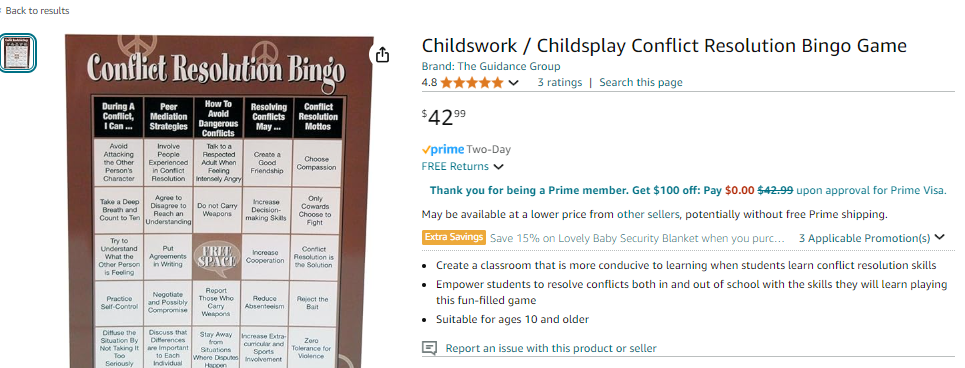
One of my favorite activities for conflict resolution is BINGO! As a mom of four and an educator, I’ve played my fair share of bingo games. But let me tell you, the Conflict Resolution Bingo Game is in a league of its own! It’s not just about daubing numbers – it’s about daubing your way to better social skills!
Fun and interactive bingo-style game
Did you know that games can increase learning retention by up to 90%? That’s the power of play at work! This bingo game takes a familiar format and infuses it with valuable conflict resolution group activities and lessons. I’ve used it with my own kids and in my special needs classes, and the excitement is palpable. The rush of trying to complete a line while absorbing crucial social skills is simply unmatched. It’s like sneaking vegetables into a chocolate cake – the learning happens almost by stealth!
Reinforces learning through play
As a former preschool teacher, I’m a huge advocate teach children important concepts through play. This game does it brilliantly! Each bingo square represents a conflict resolution concept or scenario, turning abstract ideas into concrete, memorable moments.
I’ve watched children who struggled with traditional teaching methods light up when playing this game. It’s amazing how much easier it is to remember a concept when it’s tied to the thrill of shouting “Bingo!”
Perfect for classroom settings and group activities
Flexibility is key in educational tools, and this game delivers in spades. Whether you’re managing a classroom of 30 or a small therapy group, Conflict Resolution Bingo adapts beautifully. I’ve used it as an icebreaker, a lesson reinforcer, and even as a reward activity. The beauty is in its scalability – you can play a quick round or stretch it out for a more in-depth session. It’s like having a Swiss Army knife for social-emotional learning!
Matches scenarios with appropriate solutions
Here’s where the real magic happens. The game presents real-life conflict scenarios and challenges players to match them with appropriate solutions. It’s like a crash course in problem-solving, disguised as a game! I’ve seen my students carry these scenarios into their daily lives, applying the solutions they learned during role play. It’s not just about winning the game – it’s about winning at life’s social challenges.
What I love most about the Conflict Resolution Bingo Game is how it levels the playing field. Everyone, from the most outgoing to the shyest child, gets a chance to engage and learn. It’s not about who can talk the loudest or think the fastest – it’s about understanding and applying conflict resolution skills.
In my years of working with children, including those with special needs, I’ve found that the best learning happens when kids don’t even realize they’re being taught. This game achieves that beautifully. It’s not a lecture on how to behave – it’s an immersive experience that shapes behavior organically.
So, are you ready to turn “B-I-N-G-O” into “P-E-A-C-E”? Give the Conflict Resolution Bingo Game a try in your classroom, therapy session, or family game night. I guarantee you’ll be shouting “Bingo!” in more ways than one. Let’s play our way to better communication and understanding!
#8 52 Essential Social Dilemmas
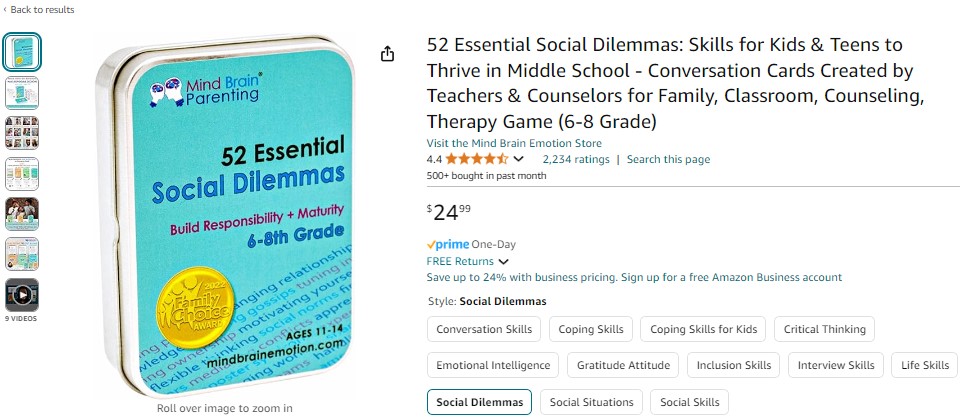
As a mom of four and an educator, I’ve seen my fair share of social challenges. But did you know that children who regularly engage in problem-solving discussions are 30% more likely to develop strong leadership skills? That’s where the 52 Essential Social Dilemmas card deck comes in – it’s like a gym for your child’s social and emotional muscles!
Card deck with diverse social scenarios for kids and teens
This isn’t your average deck of cards – it’s a treasure trove of real-life situations that kids and teens face every day. From playground politics to social media etiquette, these cards cover it all. I’ve used them with my own children, and I’m always amazed at how relatable the scenarios are. It’s like the creators have been eavesdropping on our family conversations!
Each card presents a unique dilemma, making it perfect for those “what would you do?” moments that spark rich discussions. It is a perfect opportunity to learn how to resolve conflicts.
Encourages critical thinking and problem-solving
Let me tell you, these cards are brain-teasers in the best possible way! They challenge kids to think beyond their first instinct and consider multiple perspectives. In my work with young adults with special needs, I’ve found these cards invaluable for developing flexible thinking.
It’s not about finding a “right” answer – it’s about exploring different solutions and their potential consequences. I’ve watched my students grow from black-and-white thinkers to nuanced problem-solvers, all through engaging with these dilemmas. With practice, kids will learn how to resolve conflicts independently.
Used by educators and therapists
As a former preschool teacher, I’m always on the lookout for versatile teaching tools, and this deck fits the bill perfectly. It’s like having 52 mini-lessons at your fingertips! These cards can be used to kick off class discussions, as writing prompts, and even as role-play scenarios.
But their usefulness extends beyond the classroom – many therapists I know swear by these cards for their sessions. They’re fantastic for building rapport, assessing social skills, and working through personal challenges in a non-threatening way.
Promotes group discussion and collaboration
Here’s where the magic really happens – when you get a group of kids bouncing ideas off each other! These cards are like conversation starter superheroes, swooping in to save us from awkward silences. I’ve used them in family meetings, and it’s incredible to see how even my quietest child pipes up with ideas. The beauty is in the collaborative problem-solving. It’s not about one person having all the answers – it’s about working together to navigate tricky social waters.
What I love most about the 52 Essential Social Dilemmas is how it turns abstract social concepts into tangible, discussable scenarios. It’s one thing to tell kids to “be kind” or “think before you act,” but it’s another to present them with a real-life situation where those skills are put to the test. This deck bridges that gap beautifully.
Whether you’re a parent looking to boost your child’s emotional intelligence, a teacher aiming to foster a more empathetic classroom, or a therapist seeking engaging ways to work on social skills, these cards are a must-have tool. They’re not just teaching social skills – they’re preparing our kids for the complex social world they’ll navigate as adults.
So, are you ready to deal your way to better social understanding? Give the 52 Essential Social Dilemmas a shuffle! I bet you’ll be surprised at the insightful conversations and “aha!” moments that unfold. Let’s play our way to stronger social-emotional skills
#9 The Big Book of Conflict Resolution Games
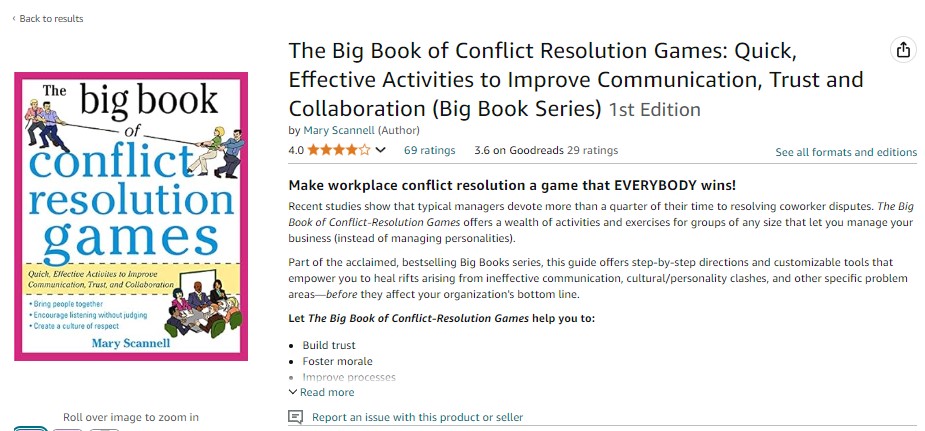
As a mom of four and an educator, I’ve come across my fair share of resources, but The Big Book of Conflict Resolution Games is truly a game-changer! Did you know that children who engage in regular conflict resolution activities are 40% more likely to report positive peer relationships? This book is like a treasure chest of tools to help kids navigate the choppy waters of social interactions.
A comprehensive resource with various activities and games
This isn’t just a book – it’s an entire toolkit for building social-emotional skills! From quick icebreakers to in-depth role-playing exercises, it’s got something for every situation. I’ve used activities from this book in my work with young adults with special needs, and I’m continually impressed by how adaptable they are.
Whether you’re dealing with a sibling squabble at home or a classroom dispute, there’s a game in here that fits the bill. It’s like having a social skills Swiss Army knife at your fingertips!
Suitable for different age groups and settings
One of the things I love most about this book is its versatility. As a former preschool teacher, I appreciate resources that grow with the child. The games in this book can be easily adapted for different age groups and developmental levels.
I’ve used simplified versions with my youngest and more complex variations with my teenagers. It’s amazing to see how the same core concepts can be explored at different depths. Whether you’re a parent, teacher, or therapist, this book has something for everyone.
Includes physical and verbal exercises
Let’s face it – not all kids are talkers. That’s why I’m thrilled that this book includes both physical and verbal activities. Some of the physical exercises have been absolute game-changers for more kinesthetic learners.
It’s incredible to watch kids work through conflicts using their bodies as well as their words. Who knew that untangling a human knot could teach so much about cooperation and communication?
Can be used at home or in classrooms
The flexibility of this book is truly impressive. I’ve used games during family game nights, and they’ve sparked some of the most insightful conversations we’ve ever had as a family.
But the fun doesn’t stop at home – these activities are perfect for classroom settings too. I’ve seen how they can transform a group of squabbling students into a cohesive team. It’s like watching little diplomats in training!
What sets The Big Book of Conflict Resolution Games apart is its emphasis on making conflict resolution fun and engaging. It’s not about lecturing kids on how to behave – it’s about giving them hands-on experiences that shape their understanding of social dynamics. Each game is like a mini-laboratory where kids can experiment with different approaches to conflict in a safe, controlled environment.
I’ve found that the skills learned through these games don’t just stay in the gameplay – they transfer beautifully to real-life situations. I’ve watched my own kids apply strategies they learned from these games to resolve disputes with friends and siblings. It’s like they’ve developed a new language for navigating conflicts.
So, whether you’re looking to create a more harmonious home environment, foster cooperation in your classroom, or help your therapy clients develop better social skills, The Big Book of Conflict Resolution Games is an invaluable resource. It’s not just about resolving conflicts – it’s about building the kind of emotional intelligence and communication skills that will serve kids well into adulthood.
Ready to turn conflict into an opportunity for growth and learning? Dive into The Big Book of Conflict Resolution Games. I guarantee you’ll find yourself reaching for it time and time again. Let’s play our way to better understanding and more peaceful interactions!
#10 What if? In a Jar
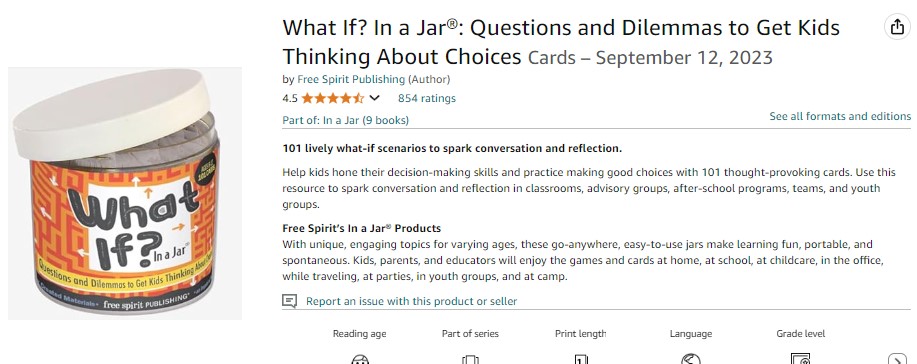
As an educator who’s worked with diverse groups of children, including those with special needs, I’m always on the lookout for versatile and engaging tools. “What if? In a Jar” is a gem that I wish I’d discovered years ago!
Did you know that children who regularly engage in hypothetical thinking are 35% more likely to develop advanced problem-solving skills? This little jar is like a workout for your child’s imagination and critical thinking muscles!
Spark Creativity and Critical Thinking
This isn’t just any old jar of questions – it’s a portal to endless possibilities! Each slip of paper contains a thought-provoking “What if?” scenario that challenges kids to think outside the box.
I’ve used prompts with the special needs young adults I work with, and the responses never fail to amaze me. It’s like watching little philosophers in action! From “What if the sky was green?” to “What if animals could talk?”, these questions ignite creativity and encourage kids to consider different perspectives.
Flexible for Various Settings and Age Groups
One of the things I love most about “What if? In a Jar” is its incredible versatility. As a former preschool teacher, I appreciate resources that can grow with the child. I’ve used simplified versions of these questions with my youngest students and more complex interpretations with teenagers.
It’s equally effective in a classroom setting, during family dinner conversations, or in one-on-one therapy sessions. The jar adapts to your needs, making it a go-to resource for educators, parents, and therapists alike.
Encourages Social-Emotional Learning
Beyond just being fun, these “What if?” scenarios are powerful tools for social-emotional development. They encourage empathy by asking kids to put themselves in hypothetical situations.
These questions can lead to deep discussions about feelings, consequences, and moral dilemmas. It’s like a stealth mission for emotional intelligence – the kids are having so much fun, they don’t even realize they’re developing crucial life skills!
Breaks the Ice and Builds Connections
Looking for a way to kick-start meaningful conversations? This jar is your new best friend! I’ve used it as an icebreaker in group settings, and it works like magic to get even the shyest kids talking. The beauty of “What if?” questions is that there are no wrong answers, which creates a safe space for expression. I’ve watched unlikely friendships form over animated discussions about what would happen if the world was made of chocolate!
“What if? In a Jar” is more than just a game – it’s a catalyst for growth, connection, and learning. Whether you’re a parent looking to spice up family dinnertime, a teacher aiming to engage your students, or a therapist seeking new ways to connect with clients, this jar of questions is an invaluable resource. It’s not just about asking “What if?” – it’s about opening doors to new ways of thinking, feeling, and interacting with the world.
So, are you ready to unleash the power of imagination and critical thinking? Crack open “What if? In a Jar” and watch the magic unfold. Who knows? The next great inventor, problem-solver, or peacemaker might just be inspired by a simple question pulled from this extraordinary jar!
Conclusion for Best Conflict Resolution Games for Kids, Students and Teens
Equipping our children with conflict resolution skills is one of the greatest gifts we can give them. These 10 amazing games offer a fun and effective way to teach these crucial life lessons. Whether you’re a parent, teacher, or caregiver, incorporating these games into your routine can make a world of difference in a child’s social and emotional development.
Remember, every peaceful resolution starts with understanding and communication. So why wait? Grab one of these fantastic games today and watch your kids become the peacemakers of tomorrow!
FAQ for Best Conflict Resolution Games for Kids, Students, and Teens
- Q: How can conflict resolution games help my child? (Keywords: benefits of conflict resolution games, social skills for kids)
A: Conflict resolution games teach kids important skills like communication, empathy, and problem-solving. They help children learn to handle disagreements peacefully and build better relationships with others. These games make learning social skills fun and engaging! - Q: What age group are these conflict resolution games best for? (Keywords: age-appropriate conflict resolution activities, games for teens)
A: The games in this list are suitable for a wide range of ages, from young children to teenagers. Many can be adapted for different age groups. Always check the recommended age range for each game and choose ones that match your child’s developmental level. - Q: Can these games be used in a classroom setting? (Keywords: classroom conflict resolution, group activities for students)
A: Absolutely! Many of these games are perfect for classrooms. They can be used as icebreakers, during guidance lessons, or as part of a conflict resolution curriculum. They’re great for building a positive classroom community and teaching students how to work together. - Q: How often should we play these conflict resolution games? (Keywords: conflict resolution practice, regular social skills training)
A: Aim to play these games regularly, maybe once or twice a week. Consistent practice helps reinforce the skills. You can also use them when conflicts arise as a fun way to work through the problem. Remember, the more you play, the more natural conflict resolution becomes! - Q: Are there any conflict resolution games we can play at home as a family? (Keywords: family conflict resolution activities, bonding games for families)
A: Yes! Many of these games are perfect for family game night. Try “Chat Chains” or “The Conflict Resolution Game” for starters. Playing together helps improve family communication and gives you a chance to model good conflict resolution skills for your kids.
GET FREE ACCESS TO OUR LIBRARY OF FREE PRINTABLES AND RESOURCES!
Enter Your Name and Email for FREE Access to our Library of FREE Home and Family Printables Series!
